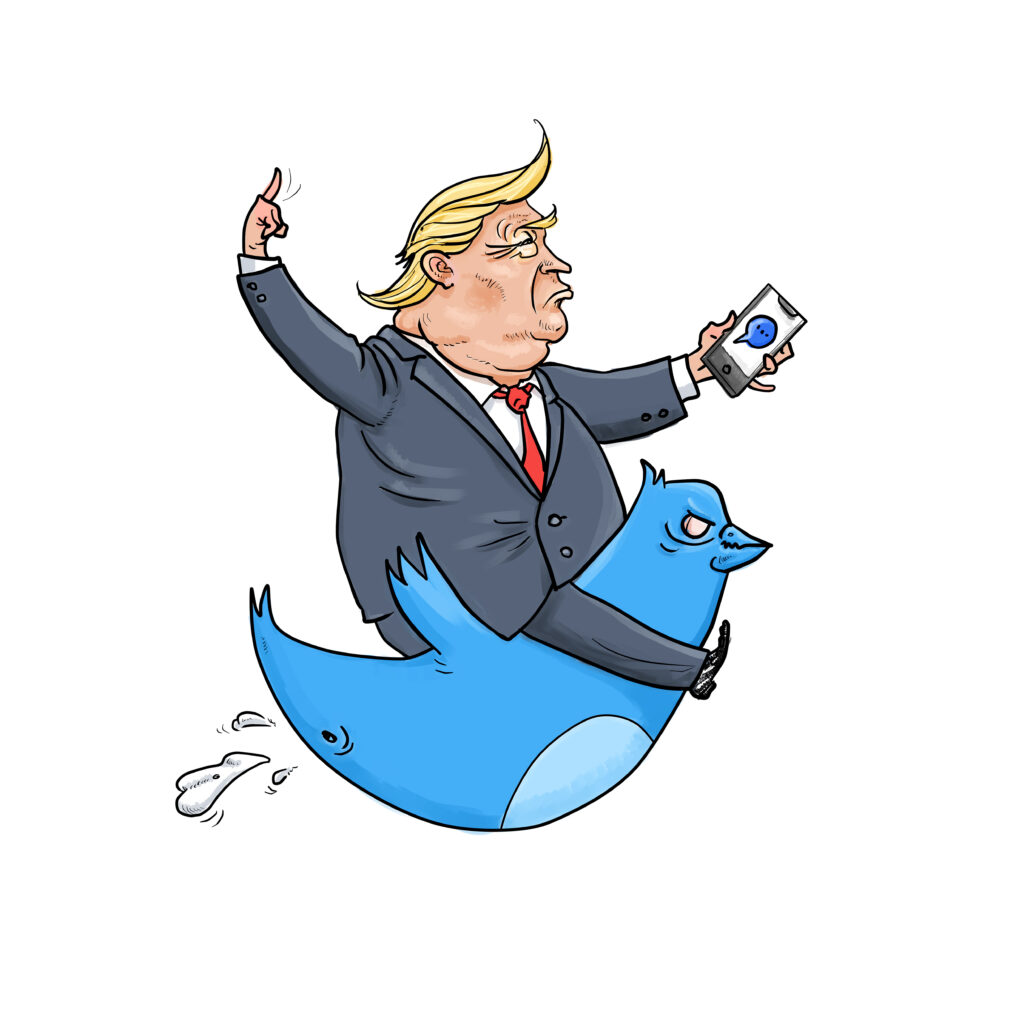November 13, 2020 | By Julius Melnitzer
Full disclosure: I hate Donald Trump.
Further full disclosure: Democracy is lucky to have lawyers who will represent the jerk.
I was among many who couldn’t believe what I was seeing and hearing in the last four years: disruption, disregard, disrespect, dishonesty, denigration, deflection and denial, all in sync with a dilettantish, dervish-like, devilish demeanour that borders on despairing depravity and ultimately, evil.

Does that disentitle Trump, or those who share his views, to legal representation? Should it make his lawyers’ pariahs? To the contrary, those who would withhold choice of counsel even from democracy deniers might consider whether their own views truly reflect democratic principles.
A Canadian lawyer, the late Douglas Christie, made a career of defending Nazis, neo-Nazis, white supremacists and racists. His clients included Holocaust denier Ernst Zündel, former Nazi prison guard Michael Seifert, right-wing extremist Paul Fromm, and Manitoba-based Ku Klux Klan members.
As co-founder and general counsel of the Canadian Free Speech League, Christie based his defences on a near-absolute right to freedom of expression. His critics accused him of using constitutional arguments as a veneer for a pro-Nazi, anti-Semitic agenda.
All of which is not to suggest that Trump ranks up there with some of Christie’s clients in the despicable directory (although many believe we haven’t seen Trump at his worst: imagine a second term). Quite the contrary. If Trump doesn’t rank up there, why should we castigate the lawyers who represent him?
To be sure, there are two arguable points that militate against the arguments supporting Trump’s right to counsel of choice.
The first is that individual liberties and values, including imprisonment and deportation, were at stake in Christie’s cases: the mere existence of Legal Aid is strong evidence of our support for representation when personal freedom is at stake. Our appetite for universal representation in civil cases is much less enthusiastic.
Trump’s attack on the electoral process, baseless though it may be, is a matter of public law, not individual liberties.
But that’s not a good argument: the sheer impact of some public law cases speaks loudly to advocating for representation there as much as in personal liberty matters. Here, few doubt that the fate and future of the United States, and even the world, are at play in the results of the American election.
It is also true that lawyers’ duty to the court transcends their duty to their clients. What follows is that lawyers should not make unfounded arguments.
The more cogent argument, then, is that the vast majority of Trump’s arguments are baseless, and that the ones that have a modicum of merit would not change the result: in a way, they’re moot. True enough.
Fortunately or unfortunately, it turns out that not all of Trump’s claims are baseless. On November 4, a Pennsylvania judge overturned a lower court ruling and permitted Trump campaign observers to monitor the counting process at closer range. And one week later, another Pennsylvania judge ruled that ballots still requiring proof of identification beyond six days after the election should not be counted.
These are certainly not game-changing decisions. But arguably, they deal with important issues regarding the integrity of the political process and the validity of ballots.
To this end, Jones Day has denied the firm’s involvement in any litigation alleging voter fraud. The firm is in fact challenging a pre-election (August 2020) judgment approving the extension of Pennsylvania’s statutory deadline to return mail-in ballots. U.S. Supreme Court Justice Samuel Alito, ruling on a Republican application for an injunction pending the court’s decision on accepting the appeal, has ordered state officials to segregate ballots arriving after the statutory deadline.
Given what we know now, it’s highly unlikely that the Supreme Court’s ruling will affect the overall electoral result, or even the outcome in Pennsylvania.
But does that mean Trump or his cronies (in this instance, the Pennsylvania Republican Party) don’t have the right to challenge real electoral process defects? Is it moot for the courts to decide just how ballots should be counted or – – – given the chaos we now know can pervade the electoral process even in the world’s largest democracy – – – is guidance from the Supreme Court, which may affect future legislation on voting rights in Pennsylvania and perhaps elsewhere, in any sense moot?
The outcry and demonstrations against Jones Day are ill-conceived. Indeed, they’re founded on the twin beliefs that Biden will win one way or the other, and that anyone taking Trump’s side (including, apparently, the 70 million or so who voted for him) is, to put it bluntly, a low-life.
Critics of the lawyers representing positions favouring Trump lump them all in the same pigeonhole. But by failing to distinguish between cases that are not baseless, and the vast majority that are, they are in danger of falling into that visceral, irrational polarization that created this mess in the first place.
In a democracy, even the people you hate have rights – actually, especially the people you hate.
RELATED STORIES
Canadian lawyer weighs in on Trump’s Twitter tweets
Toronto’s Arbitration Place offers alternative to Trump’s America
Julius Melnitzer is a Toronto-based legal affairs journalist, writing coach and media trainer to lawyers. Readers can reach him at julius@legalwriter.net or at https://legalwriter.net/contact.